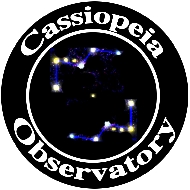Visitors, iPhone Astrophotography Tutoring
Posted: 23 October 2024
|
Open: Tuesday, 22 October 2024, 1804 MST Temperature: 76°F |
Session: 2024 Conditions: Mostly clear |
Equipment:
12" f/8 LX600 w/StarLock
2" 24mm UWA eyepiece
2" 30mm eyepiece
12x50 binoculars
Camera:
iPhone 15 Pro Max
1807 MST: LX600 ON, StarLock OFF, High Precision OFF.
I then noticed that there was a visitor at the observatory (on the dome). The spider was about the size of a half-dollar coin.
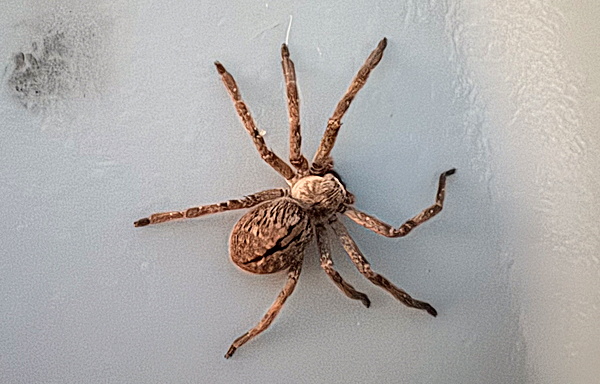
I viewed Venus, 102.
David, a local amateur astronomer friend, then arrived at the observatory. He wanted some tutoring on using his iPhone for astrophotography.
1825 MST: I spotted Comet Tsuchinshan-ATLAS (C/2023 A3), 12x50 binoculars.
David then viewed Venus, 102X.
Viewed Comet Tsuchinshan-ATLAS, 102X and 81X.
I discussed types of smartphone adapters, in particular my two favorites: the Levenhuk Smartphone Adapter and the Accuview 3-Axis Smartphone Adapter. I talked about the LiDAR issue with newer model iPhones. I also talked about autofocus issues using the Camera app. I described how to set up a red filter for the iPhone screen. I also described using the wired Apple Earbuds as a "remote shutter release". Using my iPhone 15 Pro Max, I then demonstrated how to use a smartphone for afocal astrophotography. I showed how to mount the smartphone adapter on the eyepiece and how to attach the phone and center the camera lens over the eyepiece at the right "eye relief" distance.
1908 MST: I took these iPhone 15 Pro Max afocal 81X images of Comet Tsuchinshan-ATLAS using the Apple Camera app.
Night Mode (30 seconds, 1X lens)
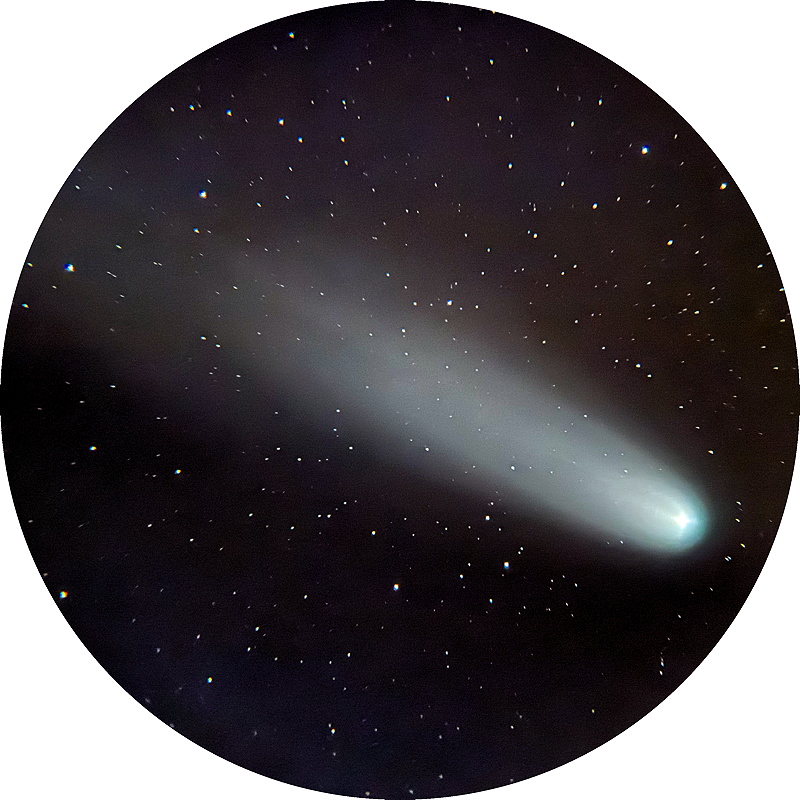
Night Mode (5 seconds, 1X lens)
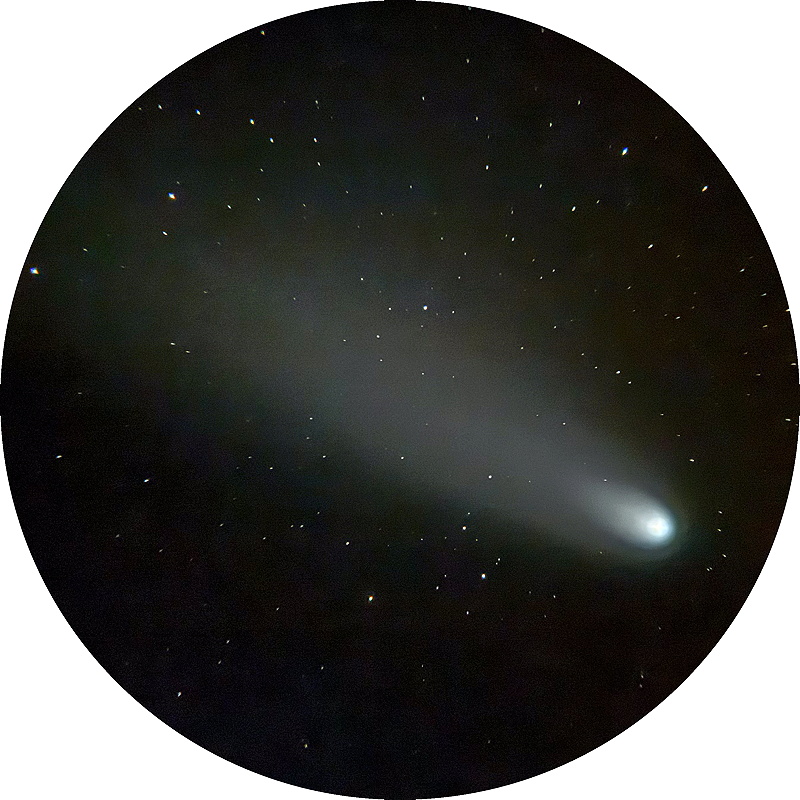
David then attached his iPhone on the adapter and did some images of the Comet using NightCap Camera and the Apple Camera app.
1946 MST: I took these handheld iPhone 15 Pro Max sky photographs showing the Milky Way and the Comet.
Night Mode (10 seconds, 1X lens)
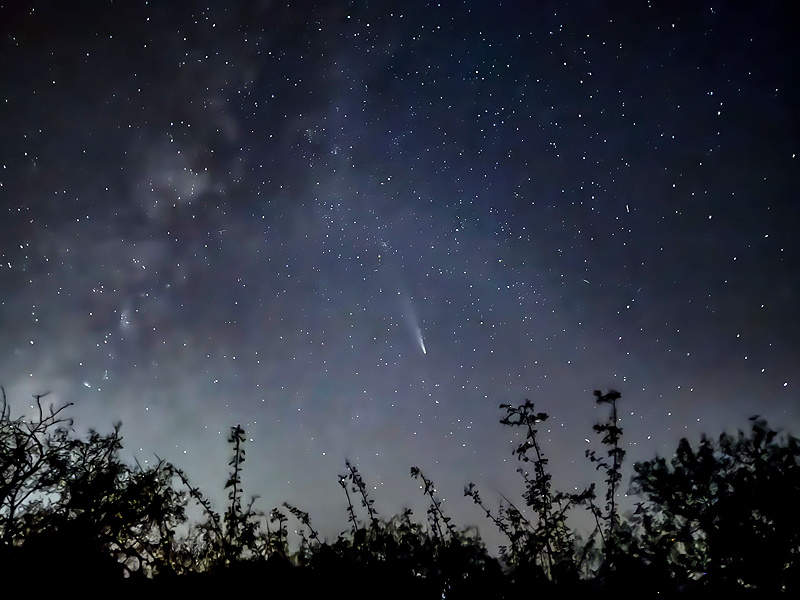
Night Mode (10 seconds, 5X lens)
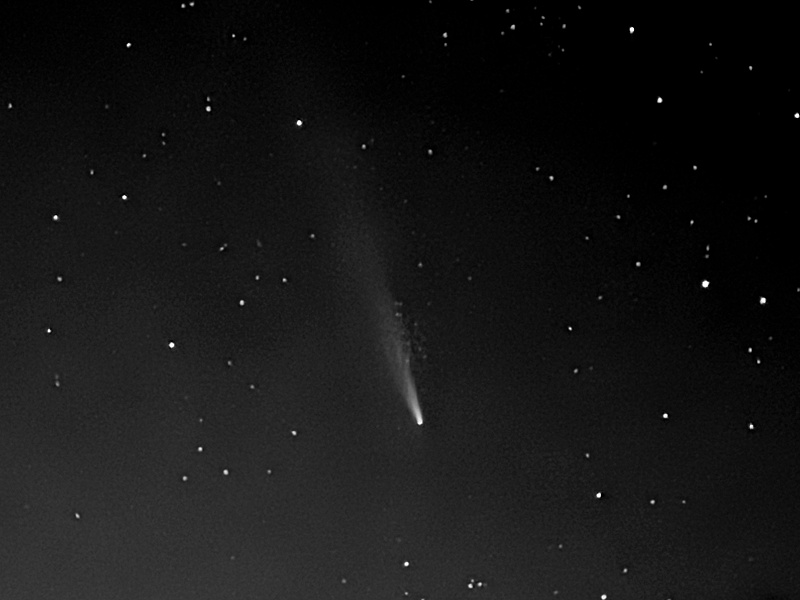
I discussed mounting a smartphone on a camera tripod using some types of smartphone adapters for sky astrophotography.
1954 MST: I noticed that Comet Tsuchinshan-ATLAS was faintly visible to the naked eye.
We then viewed M57 (Ring Nebula), 81X. David took some afocal 81X images of the Ring Nebula using his iPhone. I then took this afocal 81X image of the Ring Nebula using my iPhone 15 Pro Max (Night Mode, 30 seconds, 1X lens).
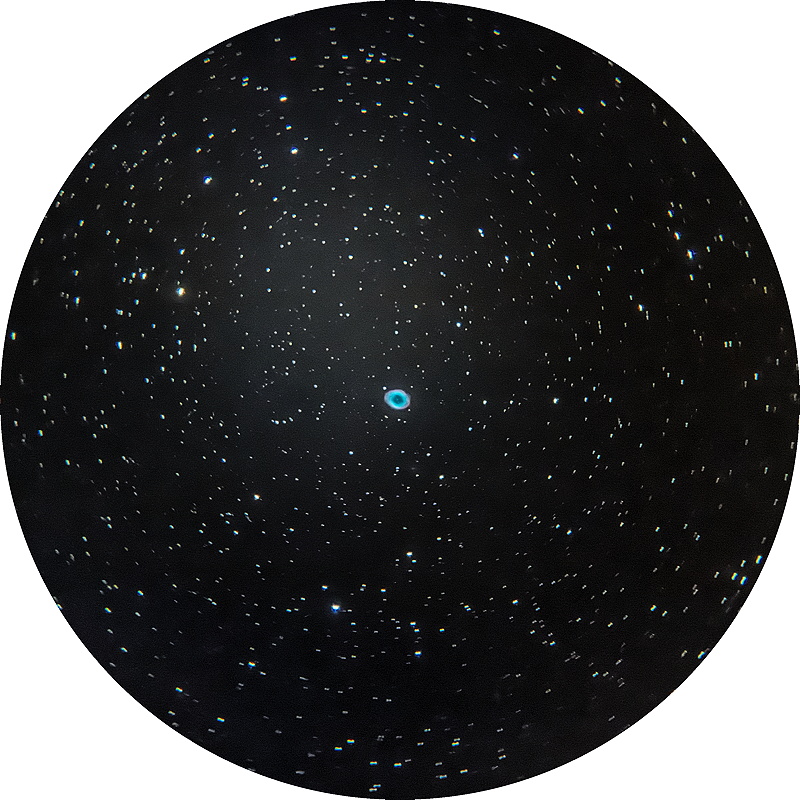
2114 MST: Before David left we talked about the bright unshielded nuisance lights at a building on Highway AZ-77 about a mile away. Since my house is at a higher elevation than the highway, the lights are shining upward. The lights were so bright they cast shadows. We could even see "heat waves" continously moving on the wall of my house.
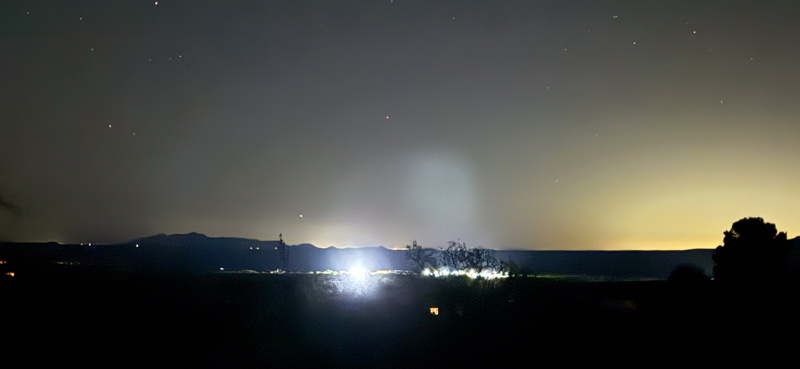
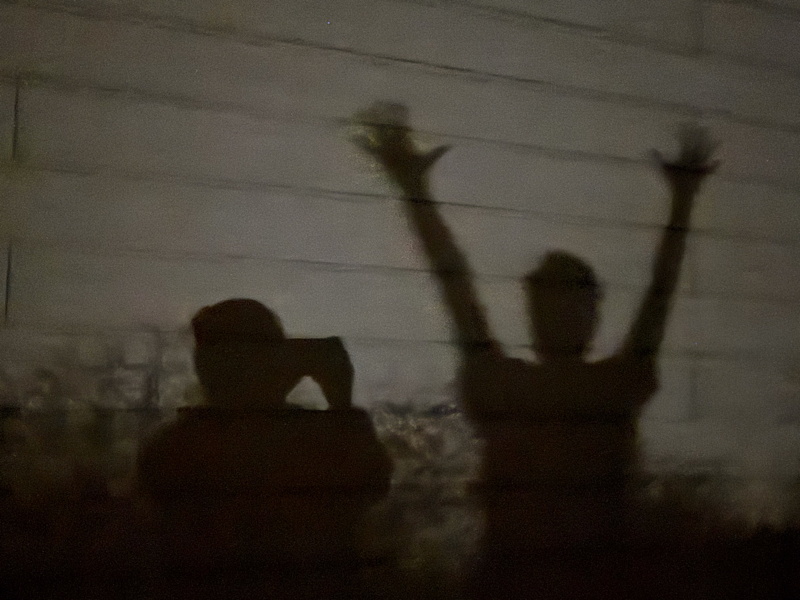
I viewed Saturn, 102X.
2145 MST: LX600 OFF.
|
Close: Tuesday, 22 October 2024, 2154 MST Temperature: 67°F |
Session Length: 3h 50m Conditions: Clear |
Comments are welcome using Email. Please read the Email Etiquette guidance.
Cassiopeia Observatory Home Page
Copyright ©2024 Michael L. Weasner / mweasner@mac.com.
URL = http://www.weasner.com/co/Reports/2024/10/23/index.html
